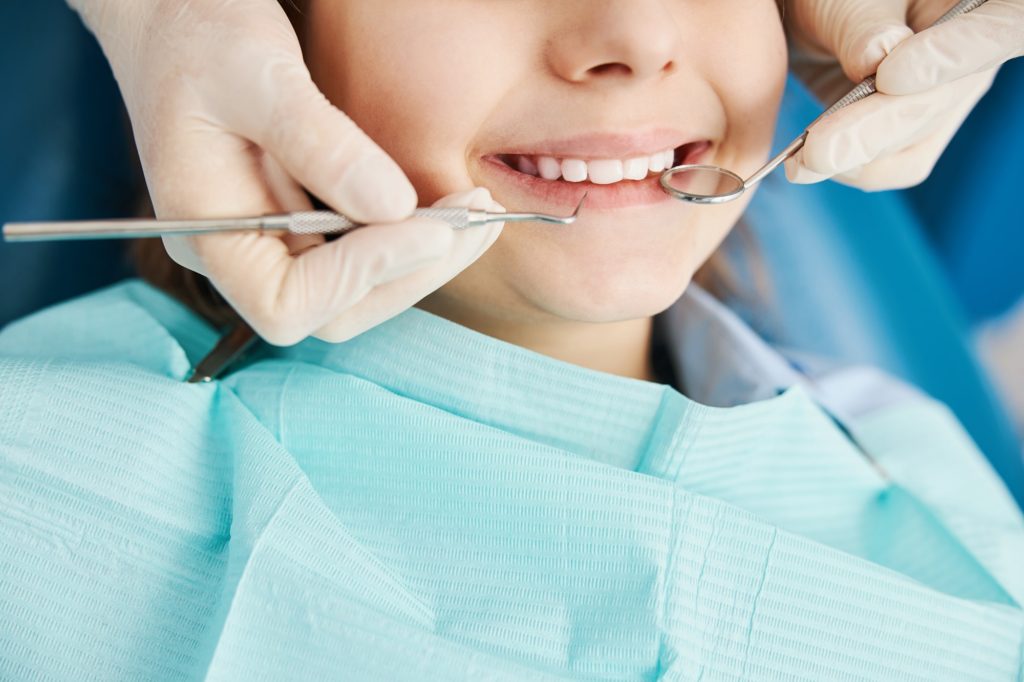Location
9735 Landmark Parkway Dr.
Suite #16 St. Louis, MO 63127
Call Us
(314) 270-5817
9735 Landmark Parkway Dr.
Suite #16 St. Louis, MO 63127
(314) 270-5817
Most baby teeth come out on their own, but occasionally your child might have a tooth or two that needs extracted. There are several reasons for this, including tooth decay, damage or as preparation for orthodontic treatment.
Baby tooth enamel is very fragile and children don’t always have the dexterity for great hygiene. Depending on the level of decay, the problem could be solved with a restoration, pulp therapy (a baby root canal), crown, or combination of the three. If a tooth does need to be extracted, a space maintainer is usually placed to prevent shifting until the adult tooth comes in.
Another cause is that their baby teeth could be sticking around for a little too long, which can crowd the adult teeth coming in. In that case, an extraction could actually decrease the need for braces and their duration down the road!
As a parent, a tooth extraction might sound scary, but it is a simple procedure (and also one of the most common). Our team also makes sure we go through the process gently with your child, guiding them every step of the way, and helping with any anxiety they might feel.

So you know now that a child’s tooth only needs to be pulled in case of decay, damage, or overcrowding. But how do you know whether a tooth needs to be extracted at an actual dentist?
Here are our recommendations:
The American Academy of Pediatric Dentistry (AAPD) recommends scheduling a child’s first dental exam and cleaning after the first tooth erupts, but no later than their first birthday. They also recommend taking your child in for regular cleanings every 6 months.
During their regular exam, we can easily find out if a tooth needs a little extra “nudge”.
Sometimes it’s pretty obvious that your child’s teeth are getting overcrowded, misaligned, decayed, or damaged. Do a quick check every so often and see if there are any visible problems.
A loose tooth might also be taking too long to fall out, or maybe your child had an accident that damaged their tooth. In both cases, make sure to take them to the dentist to see if an extraction is needed.
If teeth are getting overcrowded or damaged, your child might complain of ongoing pain. This is a good sign to take them into the dentist and see if a tooth needs extracted.
It is absolutely normal for your child (and you!) to feel some anxiety about getting their teeth extracted. However, extraction of a baby tooth or young permanent tooth is less invasive than for a mature adult tooth.
It all starts with an X-ray. This lets us examine the health and development of a tooth, and its supporting structures. If extraction is necessary, we will anesthetize the area and remove it with specialized instruments. If your child feels anxious about the process, we can discuss additional anti-anxiety measures such as nitrous oxide, anxiolytic medication or various forms of sedation.
There is no minimum age for tooth extraction. If a child has teeth growing in, there is always a chance for tooth decay, damage, or overcrowding. In any of these cases, an extraction might be needed and can be performed no matter how old your child is.
They will feel what’s described as “pressure”, but your child won’t experience any pain at all during the extraction. They may even hear some noises. This is because we use a local or general anesthetic. Your dentist or hygienist will let your child know what to expect before the procedure, so they feel more at ease.
It depends on how many teeth need to be extracted and the complexity, but the entire extraction takes only 20-40 minutes for one tooth – In and out in the time it takes to watch your favorite show on Netflix! Each additional tooth may take approximately another 5-15 minutes. Because a child’s teeth are so much different from an adult’s, it’s generally recommended to let a pediatric dentist do the tooth extraction. Pediatric dentists have an extra 2-3 years of specialized training, and have a more welcoming, child-friendly environment.
Remember that a little bit of bleeding is normal after an extraction, so a dentist will apply sterile gauze to the area.
Now, you’ve probably heard about dry sockets. Dry sockets are painful, but only occur with extraction of permanent teeth – usually wisdom teeth. After a tooth is extracted, a protective blood clot is formed by the body. It’s really important to keep this blood clot in place so the area can heal. This clot is what allows the body to heal the area so we want to keep it firmly in place.
Here are a few things your child can do to keep the clot in place:
Dr. Kelly Jobe and the team at Kids Smiles Pediatric Dentistry are committed to providing the best pediatric dental care in the greater St. Louis, MO area! Please contact us with any questions regarding your kid’s dental health, we are here to help!
Dr. Kelly Jobe & her staff are passionate about providing the best pediatric dental care in St. Louis, MO!
© Copyright Kids Smiles Pediatric Dentistry. All rights reserved. Privacy Policy.